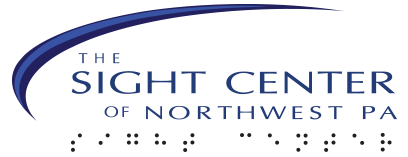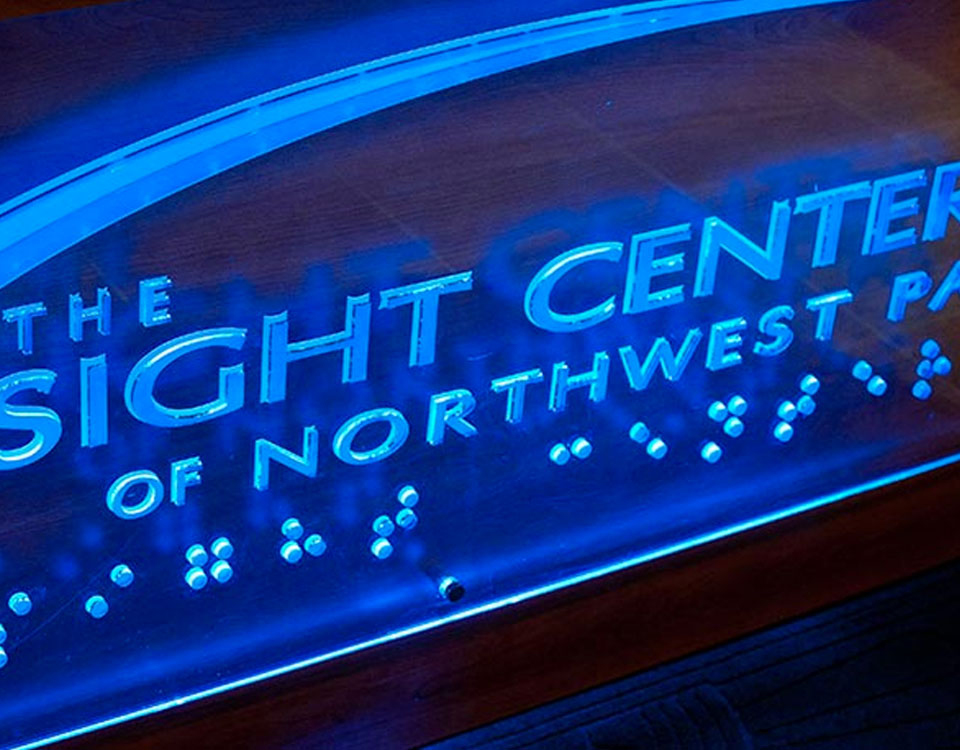What to Expect During a Low Vision Evaluation
An appointment for a low vision evaluation with the Sight Center is one of the most important appointments you can make for improving your ability to see.
To get the most from the examination:
First you must realize lost vision cannot be restored. However, through vision rehabilitation, the Sight Center can teach you to effectively use your remaining vision.
We can help you learn to use your remaining vision in three different ways.
- By teaching you to use your remaining vision more efficiently than you do now.
- By showing you how to perform tasks using alternative devices such as better lighting, high contrast, enlarged print, and auditory or hearing techniques.
- By teaching you how to use special optical devices such as magnifiers, spectacle microscopes, and telescopes. These devices will improve your ability to see detail, but may require you to hold material closer to your eyes or see through only a small field of view. The benefits, however, can far outweigh the limitations if you are truly motivated to see.
Low vision exams are different from regular eye exams. While some tests may be familiar, others are specific to low vision. The primary goal of a low vision exam not to diagnose eye disease, but rather to maximize functional vision.
Low vision exams are talk oriented. Each person has different needs so every low vision exam is different. Some people want to be able to read newspapers again while others want help to see the TV better. During a low vision exam, the doctor will discuss your goals and will recommend devices and training that will assist you with those goals.
Low vision clinic does not treat disease, nor will it improve visual acuity. Low vision specialists work closely with occupational therapists (OT) who specialize in vision rehabilitation. After your evaluation, an OT may offer training and strategies to help maximize your success with recommended low vision aids.
Preparing for the Appointment
Think about specific problems you are having at home, work, or school because of your failing vision. Make a list of activities that you want and need to do, such as sewing, playing cards, watching television. Also, be sure to list the types of reading materials you want – and need – to access. This information will help focus your discussions with our low vision doctor and his or her staff.
What to Bring to the Evaluation
- Your ID
- Insurance cards
- Medication lists
- Any glasses or magnifying glasses you are presently using. If you have any special materials (forms, books, needlepoint, etc.) you want to be able to work with, bring them to the evaluation as well. This is particularly important for material you use at work, school, or hobbies you wish to pursue.
There will be a lot of new information discussed during a low vision appointment. It is advisable to have an interested family member or friend accompany you so you can later discuss topics brought up during your appointment.
When You Get Home from a Low Vision Visit
Many people see immediate gains during their first low vision appointment. Family members are often encouraged by how their family member’s skills have improved. It is true that overcoming vision loss can be a slow process.
It is valuable to be kind to yourself. Give yourself encouragement and try not to get frustrated. Don’t be afraid to try new things. If one or two devices have been recommended for you and some are not working the way you want them to, go back to the low vision clinic and seek other options.
Do not stick a device in a drawer and forget about it – give the low vision center a second or third try to help make it right for you. Keep an open mind; learn about the entire range of devices and strategies to help improve the use of your functional vision. There are new low vision products being developed all the time, we can help you learn what new products may best serve your needs.
The Sight Center has a clear return policy of 30 days that gives you a chance to learn how a particular device can work for you in your home.
Frustrated with Low Vision?
Remember, practice, practice, and practice! The more you use the strategies and devices recommended, the more you will get out of them.
You may find that you anger easily or feel depressed about your vision loss, or the need to rely on devices that may identify you as a visually impaired person. This is normal. Consider discussing these feelings with a social worker, case manager or therapist. Ask the Sight Center staff for a recommendation.
The Future of Low Vision
As eye disease progresses, a decrease in vision may occur and you may find that devices that have worked for years no longer give you the same results. Maybe you need a stronger device, or a completely different one. It is important to follow up with your low vision doctor on a yearly basis to see if there are new devices and strategies to best fit your needs.

